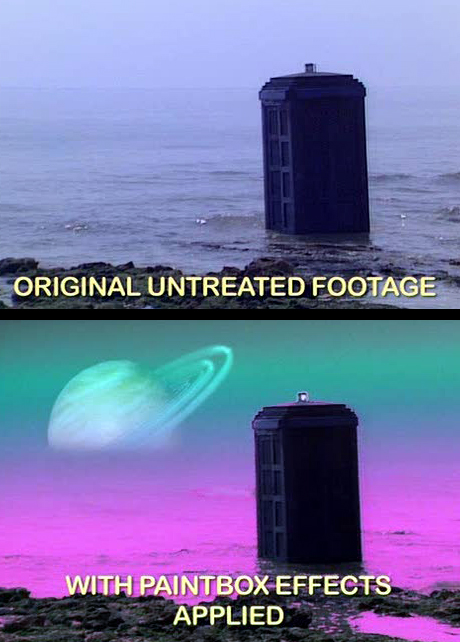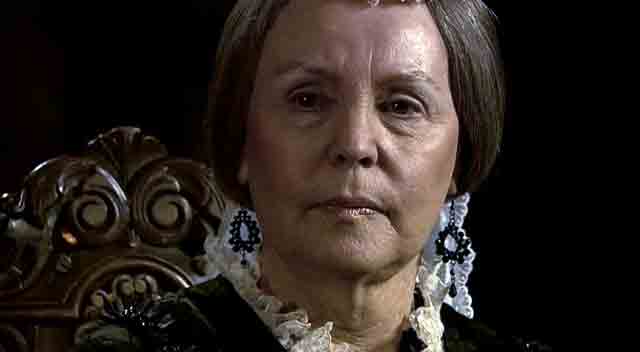Transmat:Doctor Who: Difference between revisions
No edit summary |
Eyacorkett (talk | contribs) mNo edit summary |
||
| (129 intermediate revisions by 8 users not shown) | |||
| Line 1: | Line 1: | ||
__NOTOC__ | __NOTOC__ | ||
<div | {{template:transmat:{{PAGENAME}}}} | ||
<div | <div id="tr-box-container" style="width:98%"> | ||
{{Doctor Who | <div id="tr-box-container" class="tr-box-cols" style=margin-top:40px> | ||
<div class="tr-box one"> | |||
{{thead|The women who gave ''Doctor Who'' back to us}} | |||
[[file:JaneTranter.jpg|center|link=http://tardis.wikia.com/wiki/Transmat:Doctor_Who?file=David_Tennant_interviews_Doctor_Who_Producers_-_Doctor_Who_Confidential_-_BBC]] | |||
{{tcap|Click for video}} | |||
Think ''Doctor Who'' is just for boys? Don't you believe it. Not only was the show's [[Verity Lambert|very first producer]] a woman, but it would never have come back without the fierce advocacy of '''[[Jane Tranter]]''' and '''[[Julie Gardner]]'''. Considering her importance to ''Doctor Who'' it's somewhat ironic that Tranter's only on-screen ''credits'' are for ''[[Torchwood: Miracle Day]]''. But Gardner, her "partner in crime", is tied only with [[Russell T Davies]] as the most prolific producer in ''[[Doctor Who]]'' history. | |||
</div> | </div> | ||
<div class=" | <div class="tr-box two"> | ||
{{thead|Industrial action}} | |||
[[File:Paintbox.jpg|link=http://tardis.wikia.com/wiki/Transmat:Doctor_Who?file=BBC%2527s_Historic_Mainframe_Arrives%2521%2521_%2528Quantel_Paintbox_DPB_7000%2529_This_created_many_80s_programs%2521%2521]] | |||
{{tcap|Click for a video of a [[21st century]] geek as he takes delivery of one of the two Paintboxes used by the BBC in the 1980s}} | |||
The '''[[Quantel Paintbox]]''' was a graphics workstation that allowed ''[[Doctor Who]]'' to have a primitive form of [[colourist|colour grading]] in the [[1980s]]. To find out more about the "business of show", go to '''[[:category:production information]]''', where you can read about [[colour separation overlay]], [[low loader]]s, [[telerecording]]s, [[vidFIRE]], [[rostrum camera]]s, [[2" quad]] tape, [[Ealing Studios]] and tons more.</div> | |||
<div class="tr-box one"> | |||
{{thead|Surprising guest star}} | |||
{{surprising guest}} | |||
<div class="box one" | |||
</div> | </div> | ||
<div class="tr-box two"> | |||
{{thead|Ex-Doctors never die, they just make audios}} | |||
The careers of the [[Fifth Doctor|Fifth]], [[Sixth Doctor|Sixth]], [[Seventh Doctor|Seventh]] and [[Eighth Doctor]]s are '''significantly''' longer [[Big Finish Doctor Who audio stories|in audio]] than on television. Check out their latest works at '''[[:category:{{CURRENTYEAR}} audio stories]]'''. | |||
</div> | |||
<div class="tr-box one"> | |||
{{thead|The relevance of comics}} | |||
Officially, only ''[[The Lodger (TV story)|The Lodger]]'' has been explicitly adapted from a comic strip — also called ''[[The Lodger (comic story)|The Lodger]]''. | |||
[[File:10MickeyFootball.jpg|center|link=http://tardis.wikia.com/wiki/Transmat:Doctor_Who?file=Craig_asks_The_Doctor_to_leave_-_Doctor_Who_-_BBC]] | |||
However, several stories have clearly taken material from comic strips — often those in ''[[Doctor Who Magazine]]''. ''[[The Shakespeare Code (TV story)|The Shakespeare Code]]'' contains a good amount of material from ''[[A Groatsworth of Wit (comic story)|A Groatsworth of Wit]]'', and the notion of the Doctor absorbing the [[time vortex]] in order to spare a [[companion]] was explored in both ''[[The Parting of the Ways (TV story)|The Parting of the Ways]]'' and ''[[The Flood (comic story)|The Flood]]''. | |||
</div> | |||
<div class="tr-box two"> | |||
{{thead|The first of the "money men"}} | |||
'''[[Donald Baverstock]]''' was the [[British Broadcasting Corporation|BBC]] executive who set the the wheels in motion that eventually led to the creation of ''[[Doctor Who]]''. Essentially the original commissioner of the programme, he hired [[Sydney Newman]] and later imposed a sense of financial responsibility upon [[producer]] [[Verity Lambert]]. | |||
But Baverstock wasn't the only '''[[:category:BBC executives|BBC executive]]''' to have a profound impact on the development of ''Doctor Who''. Make sure you read about [[Lorraine Heggessey]], [[Mark Thompson]], [[Danny Cohen]], [[George Entwistle]], [[Tony Hall]], [[Shaun Sutton]], [[Sydney Newman]] and others. </div> | |||
<div class="tr-box two"> | |||
{{thead|Things released on [[{{CURRENTDAY}} {{CURRENTMONTHNAME}} (releases)|{{CURRENTDAY}} {{CURRENTMONTHNAME}}]] }}{{:{{CURRENTDAY}} {{CURRENTMONTHNAME}} (releases)}} | |||
</div> | |||
<div class="tr-box one"> | |||
{{thead|Did you know…}} | |||
{{Doctor Who Wiki/DYK}} | |||
</div> | |||
<div class="tr-box three"> | |||
{{thead|[[{{CURRENTDAY}} {{CURRENTMONTHNAME}} (people)|{{CURRENTDAY}} {{CURRENTMONTHNAME}}]] births and deaths }}{{:{{CURRENTDAY}} {{CURRENTMONTHNAME}} (people)}} | |||
</div> | |||
{{#ifexpr: {{PAGESIZE:{{CURRENTDAY}} {{CURRENTMONTHNAME}} (production)|R}} < 440|| | |||
<div class="tr-box two"> | |||
{{thead|Production history for [[{{CURRENTDAY}} {{CURRENTMONTHNAME}} (production)|{{CURRENTDAY}} {{CURRENTMONTHNAME}}]] }}{{:{{CURRENTDAY}} {{CURRENTMONTHNAME}} (production)}} | |||
</div>}} | |||
</div> | |||
</div> | |||
{{reflist|2}} | |||
{{cache clearer}} | |||
Latest revision as of 08:24, 14 July 2024
Doctor Who is both a television show and a global multimedia franchise created and controlled by the British Broadcasting Corporation. It centres on a time traveller called "the Doctor", who comes from a race of beings known as Time Lords. He travels through space and time in a time machine he calls the TARDIS with his friends. Another vital element of the show is the concept of regeneration — a process by which the Doctor can change his form when he's near death. This convenient trick thus allows the programme to change lead actors in a narratively sensible way.
Though it began on the day after the Kennedy assassination in 1963, it has had three distinct production eras. The first version — sometimes called "classic Doctor Who" by fans — ran from 1963 to 1989, and contained the adventures of the first seven Doctors. In 1996 an American co-production was attempted involving the Eighth Doctor. The current iteration of the show began broadcast in 2005, and is by far the most popular and critically successful version, beginning with the adventures of Christopher Eccleston's Ninth Doctor.
In addition to the televised programme, the show has spawned a rich heritage of comics, audio stories, novels, short stories and even stage plays.
Think Doctor Who is just for boys? Don't you believe it. Not only was the show's very first producer a woman, but it would never have come back without the fierce advocacy of Jane Tranter and Julie Gardner. Considering her importance to Doctor Who it's somewhat ironic that Tranter's only on-screen credits are for Torchwood: Miracle Day. But Gardner, her "partner in crime", is tied only with Russell T Davies as the most prolific producer in Doctor Who history.
The careers of the Fifth, Sixth, Seventh and Eighth Doctors are significantly longer in audio than on television. Check out their latest works at category:2024 audio stories.
Officially, only The Lodger has been explicitly adapted from a comic strip — also called The Lodger.
However, several stories have clearly taken material from comic strips — often those in Doctor Who Magazine. The Shakespeare Code contains a good amount of material from A Groatsworth of Wit, and the notion of the Doctor absorbing the time vortex in order to spare a companion was explored in both The Parting of the Ways and The Flood.
Donald Baverstock was the BBC executive who set the the wheels in motion that eventually led to the creation of Doctor Who. Essentially the original commissioner of the programme, he hired Sydney Newman and later imposed a sense of financial responsibility upon producer Verity Lambert.
But Baverstock wasn't the only BBC executive to have a profound impact on the development of Doctor Who. Make sure you read about Lorraine Heggessey, Mark Thompson, Danny Cohen, George Entwistle, Tony Hall, Shaun Sutton, Sydney Newman and others.- 1968 - Part three of the TV Comic story The Killer Wasps was published.
- 1974 - Part two of the TV Comic story Lords of the Ether was published.
- 1984 - The Doctor Who Pattern Book was published by W. H. Allen.
- 1987
- Part three of Paradise Towers premiered on BBC1.
- Build the TARDIS was published by Target Books.
- 1988 - Part three of Remembrance of the Daleks premiered on BBC1.
- 1989 - The novelisation of The Daleks' Master Plan was published by Target Books.
- 1995
- Head Games and Millennial Rites were published by Virgin Books.
- Companions was published by Virgin Books.
- 1996 - Part one of the Radio Times comic story Ascendance was published.
- 2000 - DWM 297 was published by Panini Comics.
- 2006 - Welcome to Torchwood premiered on BBC Three.
- 2010 - Part two of The Vault of Secrets premiered on CBBC.
- 2011 - DWDVDF 73 was published by GE Fabbri Ltd.
- 2015 - The Torchwood audio story Fall to Earth was released by Big Finish Productions.
- 2016
- Rulebook was released by Big Finish.
- Supremacy of the Cybermen #4 and The Twelfth Doctor Year Two #10 were published by Titan Comics.
- TCH 43 was published by Hachette Partworks.
- 2017
- Aliens Among Us 2 was released by Big Finish.
- Toby Hadoke's Who's Round 222 was released online.
- DWM 518 was published by Panini Comics.
- DWFC 109 was published by Eaglemoss Collections.
- 2018 - The vinyl edition of Zygon Hunt was released exclusively to Sainsbury's customers.
- 2021
- The Third Doctor Adventures: Volume Eight was released by Big Finish.
- Paradise Towers: Paradise Found #1 was published by Cutaway Comics.
- 2022 - The Torchwood Soho audio story The Unbegotten was released by Big Finish.
- 2023 - The Torchwood audio story Odyssey was released by Big Finish.
- ... that Ashley Way, one of the most prolific Torchwood directors, enjoyed a particularly long professional relationship with Eve Myles, having directed her in not just Torchwood, but also Belonging, her other major work for BBC Wales?
- ... that an un-named man met Tegana at the town of Lop and gave him poison intended for Marco Polo? (TV: Marco Polo)
- ... that the name "Chumbley" was invented by Vicki, and wasn't, in fact, the proper name of the robots? (TV: Galaxy 4)
- ... that there were two versions of the Tenth Doctor in London during Christmas 2006 — one aboard a Sycorax spaceship and one helping a boy named Daniel at St Nicholas's Hospital? (TV: The Christmas Invasion, PROSE: Deep and Dreamless Sleep)
- ... that there were two different kinds of abominable snowman controlled by the Great Intelligence? (TV: The Abominable Snowmen, The Web of Fear)
- 1909 - Actor Robert Beatty was born.[1]
- 1917 - Actor Peter Ducrow was born.[2]
- 1940 - Actor Michael Gambon was born.[3]
- 1951 - Costume assistant Barry Simmons was born.[4]
- 1968 - Actor Kacey Ainsworth was born.[5]
- 1987 - Actor Ray Handy died.[6]
- 2010 - Actor Graham Crowden died.[7]
- 2014 - Actor Lynda Bellingham died.[8]
- 2015 - Writer Dick Sharples died.[9]
- 1964 - Head of Serials Donald Wilson decided to combine the third and fourth episodes of Planet of Giants, hoping this reduction in length would make the serial more exciting. (INFO: "Crisis")
- 1970 - The Mega, to be written by Bill Strutton was commissioned. It was ultimately scrapped.
- 1971 - Studio filming for Day of the Daleks took place at BBC Television Centre studio 8. (REF: Doctor Who The Handbook: The Third Doctor)
- 1978 - Filming for The Power of Kroll took place at Bray Studios. (REF: Doctor Who The Handbook: The Fourth Doctor)
- 1979 - Location filming for Shada took place. (REF: Doctor Who The Handbook: The Fourth Doctor)
- 2005 - The original script for Attack of the Graske, then called Christmas Challenge, was prepared. (DWMSE 14)
- 2009 - The Big Finish audio story Legend of the Cybermen was recorded at the Moat Studios.
- 2012 - The Big Finish audio story The Schorchies was recorded at the Moat Studios.
- 2017 - Big Finish's audio anthology The Comic Strip Adaptations: Volume One was recorded at Audio Sorcery.
- 2018 - Big Finish's The Paternoster Gang audio anthology Heritage 1 was recorded at the Soundhouse.
- ↑ Aveleyman
- ↑ Aveleyman
- ↑ CBBC Newsround
- ↑ Partington Smith, Maggie (December 2018). Costume designer and assistant. Prospero. BBC Pension Scheme. Retrieved on 30 July 2019.
- ↑ Famous Birthdays
- ↑ Doctor Who Guide
- ↑ Aveleyman
- ↑ [1]
- ↑ The Telegraph




